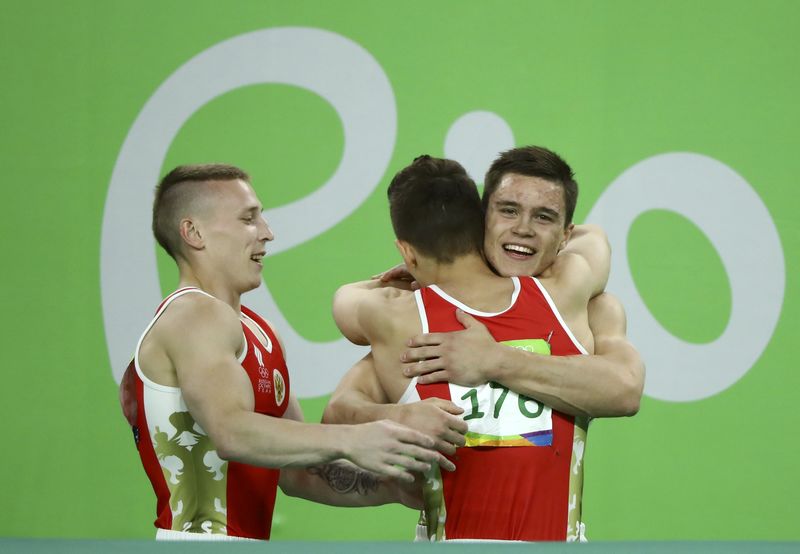By Pritha Sarkar
RIO DE JANEIRO (Reuters) - Rather than being driven to distraction by uncertainty hanging over their participation in the Rio Games following the doping scandal that has engulfed their country, Russian gymnasts channelled their energy to upstage China on Monday.
A country that had not claimed a global team medal for a decade, or any Olympic team prize since 2000, made China eat humble pie as they upstaged the 2008 and 2012 Olympic champions by taking silver behind a triumphant Japanese team in the men's final.
"We were in a really difficult situation before the Games, we didn't know whether we would be able to compete or not," Nikolai Kuksenkov told reporters.
"This performance of our team showed that we're really strong, and we can fight for the medals even when the others don't want us to do that."
While the Russian athletics and weightlifting teams have been persona non grata in Rio following the revelation of state-sponsored systematic doping, gymnasts Kuksenkov, Denis Abliazin, David Belyavskiy, Ivan Stretovich and Nikita Nagornyy discovered that all their hours, days, months and years of training may come to nothing when they too were dragged into the saga.
With the World Anti-Doping Agency recommending a blanket Olympic ban on the country's entire contingent of athletes, they needed clearance from the International Olympic Committee to compete in Rio even though they had already taken up residence in the athletes' village.
Rather than worry about things that were outside their control, they chose to focus on what they knew best -- and that resulted in them claiming a surprise medal at the Olympics for the first time since they picked up a bronze in 2000.
Asked how they had overcome the criticism, Kuksenkov added: "By believing in positive and believing in fairness in the world."
For a nation that once ruled men's gymnastics, with Russia or the former Soviet bloc countries winning the team title at four out of five Olympics from 1980 to 1996, Monday's success represented a welcome return back to form.
Strong and steady performances on the pommel horse, rings, vault and the parallel bars meant they topped the field of eight finalists from rotations one to four.
Although a Kohei Uchimura-led Japan sneaked past them in the fifth rotation, the Russians were still in the running for gold as they trailed the pre-Games favourites by just 0.208 of a point going into the final round.
But once Japan finished on the floor exercise with three dazzling performances, it was clear that the top prize was out of reach for Russia and the silver medal was also in the balance as China were hot on their heels.

When Belyavskiy's modest floor score of 14.666 flashed up, the whoops of joy from the Russian corner confirmed they had pipped China by 0.331 of a point.